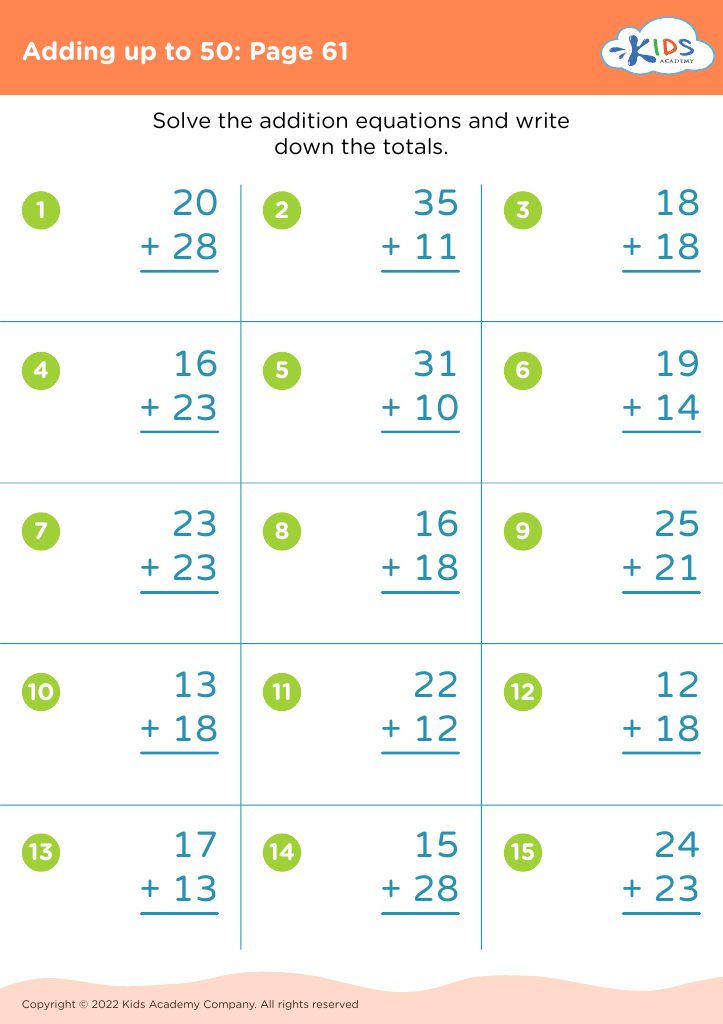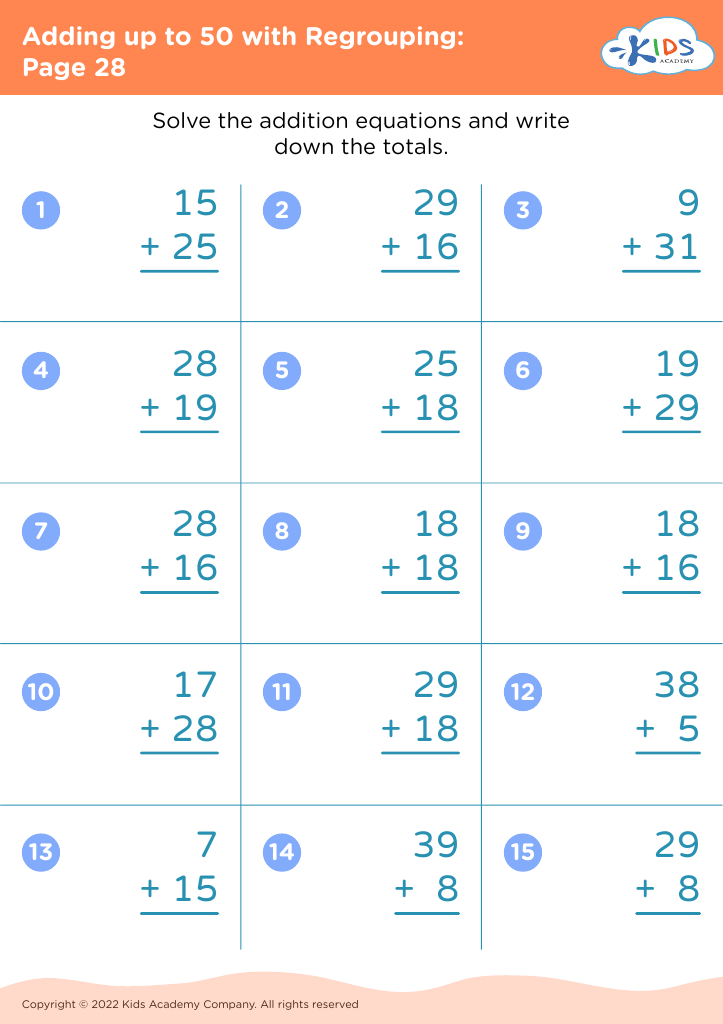Addition skills Adding up to 50 Worksheets for Ages 6-8
7 filtered results
-
From - To
Unlock your child's potential with our "Addition Skills: Adding Up to 50 Worksheets" designed specifically for ages 6 to 8. Our engaging worksheets help young learners master addition within 50, building a solid foundation in mathematics. Fun and interactive activities foster a love for math while enhancing problem-solving abilities. Each worksheet is tailored to gradually challenge students, promoting confidence and proficiency in addition. Ideal for home or classroom use, these resources ensure your child develops essential skills in arithmetic. Watch their enthusiasm for learning grow as they explore the world of numbers with our thoughtfully designed materials! Start your child's math journey today!
Parents and teachers should prioritize teaching addition skills up to 50 for children aged 6-8 for several reasons. Firstly, mastering addition lays a foundation for more complex mathematical concepts. This age group is critical for developing arithmetic proficiency, which influences future learning in mathematics, science, and even everyday problem-solving.
Furthermore, learning addition enhances cognitive development by fostering critical thinking and pattern recognition. As children practice adding numbers, they develop strategies such as counting on, making ten, or using number lines, which enhances their mathematical fluency.
Additionally, strong addition skills contribute to children's confidence in their abilities. When children can successfully add numbers to 50, they feel a sense of accomplishment that encourages a positive attitude toward learning. This confidence often carries over into other academic areas.
Finally, addition skills are practical life skills. Children use addition in everyday situations, from shopping and budgeting to understanding time and resources. Teaching these skills prepares children for real-world scenarios, making mathematics relevant.
By focusing on addition skills, parents and teachers not only enrich children's academic knowledge but also equip them with essential skills for life beyond the classroom.



















